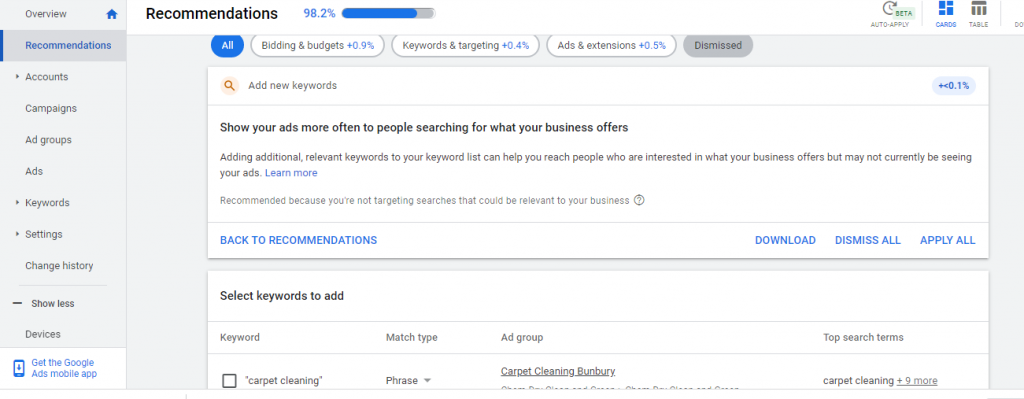Using Negative Keywords – Essential Management Tool

Using negative keywords is a vital part of professional Google Ads management.
Why are Negative Keywords Important?
They are keywords used specifically to block invalid or poor searches.
To trigger a campaign ad, browsers type a search term into Google. If there is a mismatch between the search intent and the keywords that the PPC vendor targets a portion of the client’s ad budget is wasted.
If the search term typed in is “electrician training” then the browser is almost certainly not interested in the services of an electrician. The word training should then be created as a negative keyword. It follows that words like trainer, career, job, wages, salary, conditions, leave, apprentice, trainee and more should also be added as an exclusion.
Avoiding Inaccurate Searches

Good quality Google Ads management dictates that search terms be studied over a long period of time.
My strategy is to identify as many negative words as possible. Every poor search is a cost to my Google Ads clients that should be avoided in the future.
Poor searches lead to low CTR rates. The persons browsing have not found what they were looking for and are unlikely to click on my client’s advertisement. Even those who do click on the ad may then bounce out quickly meaning they spend next to no time on the client’s website.
Google Penalises Poor Searches
These are poor quality score signals for Google. Higher average click cost and lower ad positions are the results.
Google Keyword Matching Changes
In July 2021 Google removed the option of modified broad match keywords.
This has left Google Ads managers with three keyword categories they can target:
- Broad Match – very poor option.
- Phrase Match – poor option.
- Exact Match – the only remaining quality option.
Broad match keywords can be selectively used but need large amounts of negative keywords to block poor searches. Most managers tend to avoid this category as searches are quite inaccurate.
Phrase Match keywords used to be very selective where the client’s ads would only be triggered when a specific phrase is typed in matching your Phrase Match keyword.
This has been replaced by a wayward dumbing down of searches as Google places their AI interpretation on the original search intent. Excluding keywords is the only way to make Phrase Match keywords a useful tool.
It is almost as if Broad Match and Phrase Match keywords now have roughly the same accuracy. Exact Match keywords are the default option.
I am amazed that Google still pretends that search accuracy lies at the heart of its approach. The last 6 months tell me a different story. The dream of using AI effectively is just that – a dream.

The automated keyword suggestions from Google show very little machine learning so far. The keyword suggestions are almost always ignored as the words are not nearly precise enough.
Using Negative Keywords per Adgroup
Negative keywords are used on the campaign level to block poor searches. There is an additional role for negative keywords in preventing Google from triggering the incorrect Adgroup and wrong advertisement.
This is a direct result of Google’s keyword interpretation. I will explain by example:
I use an Adgroup and Phrase Match keyword “Rug Cleaning Eastern Suburbs”. I found my keyword triggered by the search term “Carpet Cleaning Eastern Suburbs”.
Because the competition is much stronger in carpet-related searches, the bidding is much higher and my client pays for the Google interpretation error. This forces me to make “carpet” a negative keyword in any Adgroups involving rug cleaning.
Going Forward
Negative keywords are vital in professional Google Ads management. It is crucial to study search terms and expand the negative keyword list on an ongoing basis.
For more information on the subject just click on this link.
